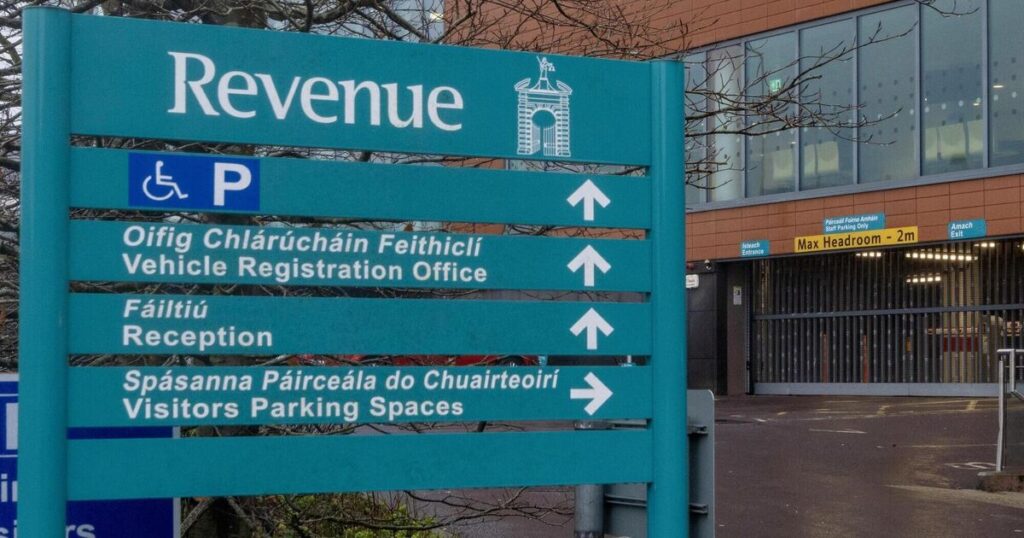The value of salary overpayments to Revenue staff reached almost €1.7 million at the end of 2023, with more than one in seven of its workforce getting paid above their proper salaries, according to the findings of an internal audit by the tax authorities.
The audit report revealed that 61 Revenue employees had received overpayments in excess of €5,000, while a further 424 staff members had been overpaid sums of between €1,000 and €5,000 during 2023.
Overpayments of €55,645 were identified as having been paid to 100 individuals who had not taken up employment as expected.
Revenue auditors also described guidelines governing work processes, procedures and controls for the management of overpayments were “dated and fragmented”.
They concluded that only “partial assurance” could be provided that Revenue’s governance and procedures for monitoring and managing overpayments were robust and in line with civil service guidelines.
The audit report, which was released under freedom of information legislation, found that no money had been repaid and/or no recoupment plan was in place for 212 out of 400 overpayment cases dating from 2002 to 2017.
The value of salary overpayments linked to these cases amounted to €296,642. In addition, money had only been recouped from 25 out of 188 remaining legacy cases that were classified as “in progress”.
The audit report shows that the salary overpayment balance in December 2023 was €1,679,140, representing approximately 0.45% of the total wage bill for Revenue staff of €374.1 million that year.
The total number of salary overpayment cases at the end of 2023 was 1,430. They included 900 overpayments which had arisen during the course of the year to the value of €1.16 million – representing an average overpayment of just under €1,300.
The report highlighted that no repayments had been made at the time in relation to 682 cases while a further 28 cases had been deferred.
Revenue reported that a total of 1,048 recoupment plans were in place during 2023 which resulted in repayments of €1.02 million and 767 cases being closed.
The latest figures available show the outstanding balance for collection for overpayments at the end of June 2024 had increased to almost €1.8 million and involved a total of 1,611 cases.
At the time, 853 staff had not made any repayments to the tax authorities for overpayments to the value of €920,968.
Revenue said the audit particularly focused on the effect that allowances, retirements, parental leave and promotions have on payroll.
Auditors also examined payroll to identify potential risk indicators such as duplicate bank accounts, staff not taking any or required minimum annual leave and cases that appeared to be on emergency tax for a prolonged period of time.
The audit was carried out as an integrated audit with internal auditors from the National Shared Services Office (NSSO) – the Government’s HR and payroll administration service.
Revenue’s auditors said they had found “evidence of a range of good work practices and internal controls in operation within Revenue regarding the management and monitoring of salary overpayments”.
They noted that Revenue operates a dedicated overpayments unit with its staff actively managing cases on a day-to-day basis.
However, the report accepted that there were “opportunities for improvement.”
The auditors also acknowledged that there was a lack of clarity on the responsibilities and requirements of Revenue and the NSSO in relation to some elements of managing cases of overpayments.
An examination of a sample of 55 recent cases of overpayments found 58% related to late applications by Revenue to the NSSO for parental leave or delayed notification by Revenue of events or changes that affected staff salary.
Revenue auditors issued four recommendations as a result of the report including one high priority finding which called for a review of legacy overpayment cases “with a view to actively progressing recoupment where possible”.
Under a circular issued by the Department of Public Expenditure and Reform, monies owed by all civil servants, including retired employees, as a result of salary overpayments should be repaid to the Exchequer as soon as possible.
Revenue said the most common causes of overpayments to its staff were allowances, parental leave, certified sick leave and resignations.
All recommendations made in the report were accepted by Revenue management.


